"An Antidote to Chaos"
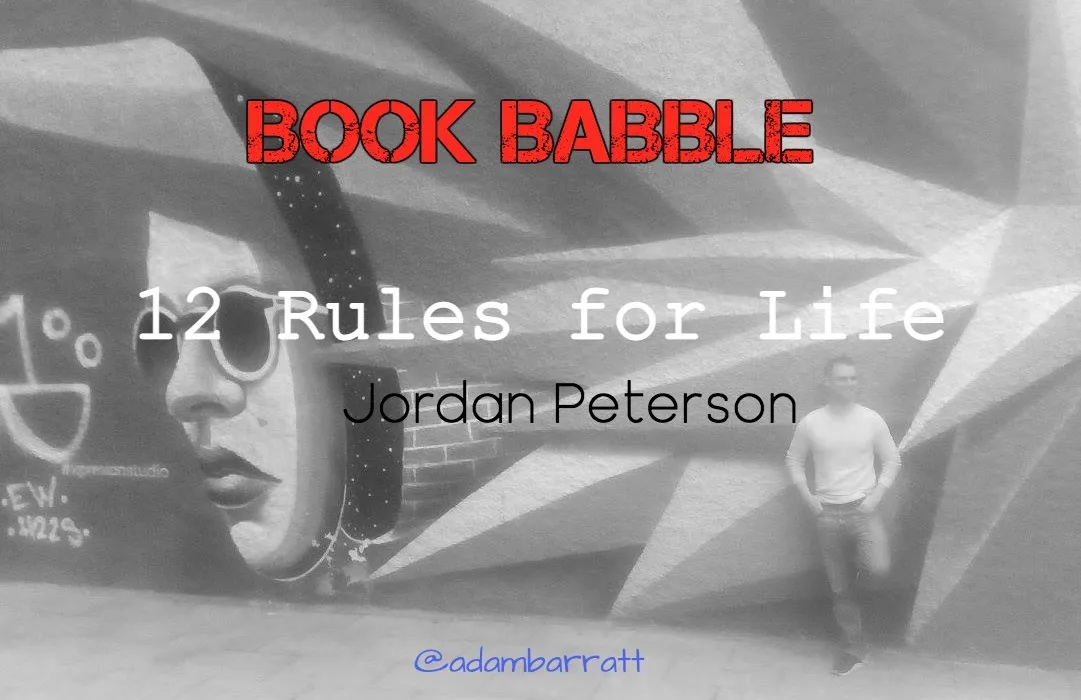
Here we have a controversial figure for many giving us some of his wisdom of how best to live life. Jordan Peterson is a Canadian psychologist, author and media commentator who has attained quite a following in recent years.
He has strong views on cultural and political issues, and is often described as conservative. There are many 'fan boys' and the like out there who hang on his every word, then there are some who are completely at odds with him and detest his message.
I don't have any strong opinions either way. He says some interesting things, and much that is on point. Some of it is nonsense or irrelevant, or just doesn't quite jive with me.
Like most people, I had a phase of consuming his stuff. His name popped up a few years ago here and there, so I checked out some of this work. I enjoyed some aspects but I take pretty much everything with a pinch of salt these days.
This is one of his books, and he has distilled down some of his philosophies and ideas into 12 rules. These tips should help you to make sense of the world (and yourself), feel good and generally contribute to a well rounded society.
Let's see…
Highlights from the book, followed by my thoughts…
And that is because alongside our wish to be free of rules, we all search for structure.
That balance between the desire for freedom and spontaneity, and the need for routine and security. Rules have a place in that they can offer guidance, whether that be life philosophies or in any other capacities. Something to follow so you know where you're at.
Order and chaos are the yang and yin of the famous Taoist symbol: two serpents, head to tail.fn1 Order is the white, masculine serpent; Chaos, its black, feminine counterpart. The black dot in the white—and the white in the black—indicate the possibility of transformation: just when things seem secure, the unknown can loom, unexpectedly and large. Conversely, just when everything seems lost, new order can emerge from catastrophe and chaos.
The masculine and feminine that balance out the universe and are so prevalent in all we do. That contrast also applies to order and chaos, and we delve into a bit of Taoism here.
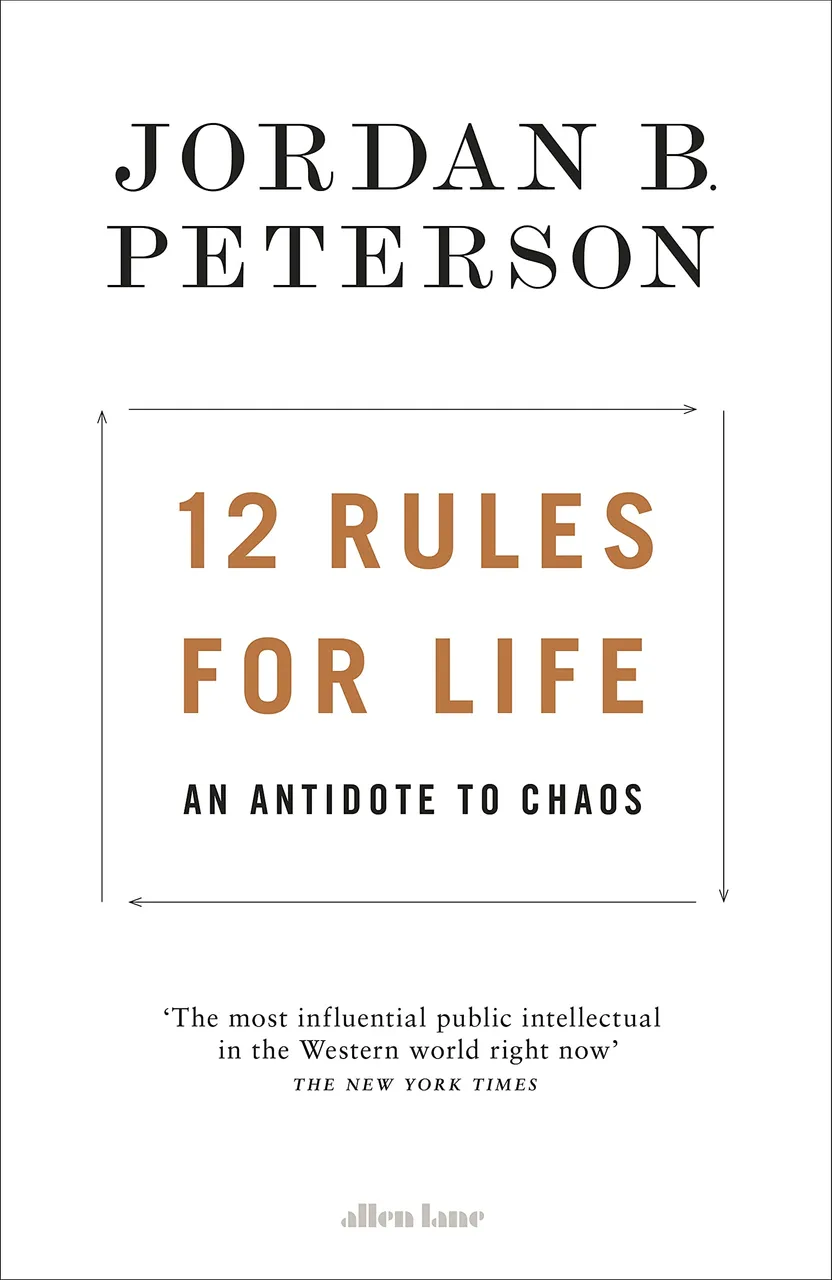
We are not happy, technically speaking, unless we see ourselves progressing—and the very idea of progression implies value.
As we say a lot in these articles, progress is happiness. When making any forward momentum, we tend to feel good no matter what the circumstances as we are moving forward and taking action. When we aren't making any progress (and even if everything's great), we feel unfulfilled and pessimistic. Progress is life, being static is death, would be a fair and brutal way to sum it up.
the dividing line between order and chaos.
And here we hit upon the issue. These sides are both important but there is a fine line. Treading that line and finding that balance can lead us in all kinds of directions and face all manner of questions.
a small fraction of the music composed by a small fraction of all the classical composers who have ever composed makes up almost all the classical music that the world knows and loves.
Like anything, the top few % produce the majority of output, with the rest of the people not producing much. I hate to bring Pareto back with his 80/20 chit-chat but it applies to many things. In this case we're talking more 95/5.
This principle is sometimes known as Price’s law, after Derek J. de Solla Price
Forget Pareto, Mr Price is in town! Price's statistical law states that 50% of any given result is generated by the square root of the number of those who contribute to it. Ok, I'm not about to get the calculator out but I take your point. Jordan likes to delve into these kind of depths…
“to those who have everything, more will be given; from those who have nothing, everything will be taken.”
This is a bible verse from Matthew. The rich get richer? As in an initial success or lack in something snowballs and builds on itself. So if you don't have anything, then you're going to have less. I'm not sure what point Jordan or Matthew are making here but something to ponder I guess.
One thing to note is that Peterson does delve a lot into religion. I'm not religious myself, but I don't mind it being used as it illustrates points through allegory and paints a picture. That's what I believe most of these religious texts are - not literal but a guidance; principles shown in stories. There is something to be learnt.
This may put off some, or add depth and meaning to what the author speaks about.
Mark Twain once said, “It’s not what we don’t know that gets us in trouble. It’s what we know for sure that just ain’t so.”
What's a set of quotes without Mark Twain? The point here is people who think they know something for sure and they're the ones who are dangerous. The wise person comes to realise that the more they know, the more they don't know.
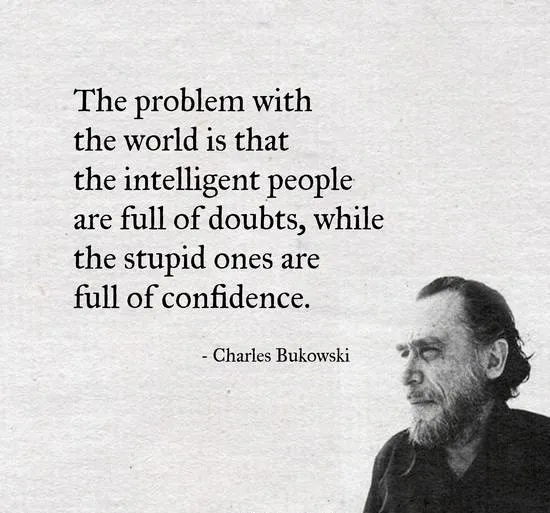
Look for your inspiration to the victorious lobster, with its 350 million years of practical wisdom. Stand up straight, with your shoulders back.
This is actually his rule 1. Not be a lobster… but stand up straight with your shoulders back. How you carry yourself and your physiology is important, and sends a message to yourself as much as anyone else.
To straddle that fundamental duality is to be balanced: to have one foot firmly planted in order and security, and the other in chaos, possibility, growth and adventure.
Goes back to an earlier point, so hitting it home a bit more. The importance of finding that elusive balance between the 2 for a fully rounded person and society.
You are, therefore, morally obliged to take care of yourself. You should take care of, help and be good to yourself the same way you would take care of, help and be good to someone you loved and valued.
This brings us to rule 2: treat yourself like you are someone you are responsible for helping. Treat yourself well and don't beat yourself up all the time. You wouldn't get away with treating others like that. Point is be kind to all… including you!
As the great nineteenth-century German philosopher Friedrich Nietzsche so brilliantly noted, “He whose life has a why can bear almost any how.”
Nietzsche likes to pop up in these articles and Peterson isn't averse to using various philosophers to prop up his work. As ever, having a strong why is super important and can help you deal with any situation.
How do you know that your attempts to pull someone up won’t instead bring them—or you—further down?
A bad apple ruins the whole bunch. Ideally, people get pulled up, but the reality is if there are negative elements in an organisation for example, then it may bring down those operating higher. It's a lot easier in that direction after all.
Make friends with people who want the best for you.
Rule 3. Speaks for itself. Surround yourself with people who want you to succeed and who aren't toxic or wanting to drag you down (or stay in the same place). Get good, positive forward thinking people around you so that can all rub off on each other.
When you have something to say, silence is a lie—and tyranny feeds on lies.
You should speak up when there's something amiss, as remaining silent is a 'lie' by ommission. This is where tyranny can take hold, so we do all have a responsibility.
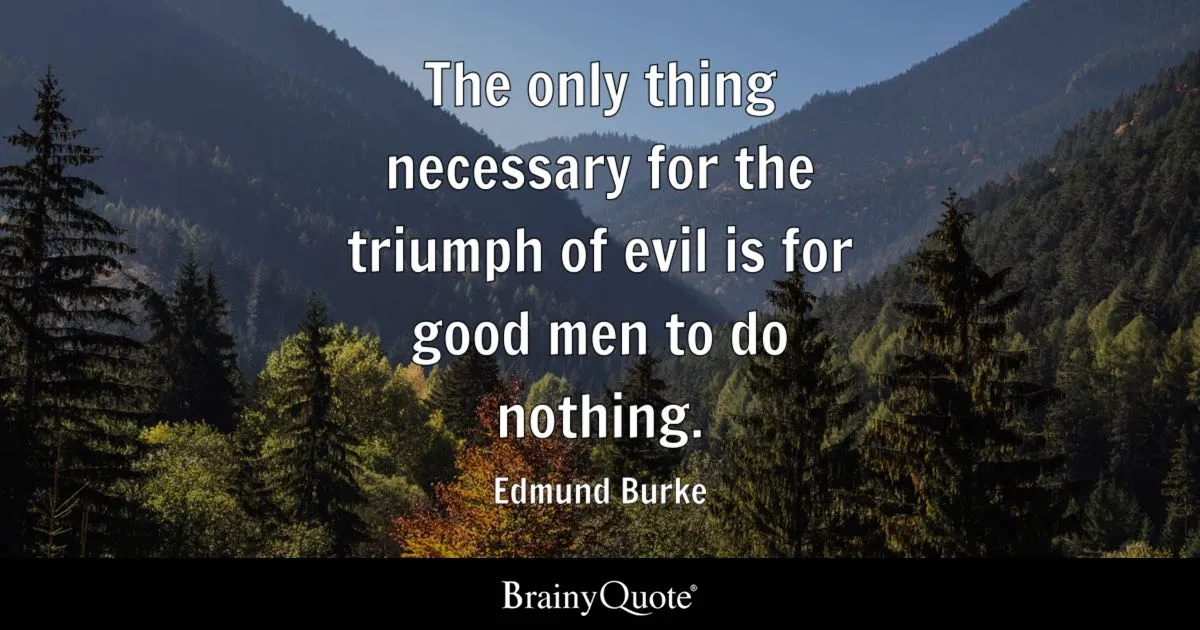
to see we must focus, and to focus we must pick one thing above all else on which to focus.
If there's one word more than any other that comes up in these BookBabbles it's focus. Picking one thing at a time and really concentrating on it and pursuing it until we reach a desired end, without all the other distractions getting in the way. Here it is again.
The disadvantage to all this foresight and creativity is chronic unease and discomfort.
Another two-sided coin. You can have 'intelligence', creative abilities, intuitions and observations but that can come at a cost. That cost being an edginess that other more blissfully ignorant types may miss.
Perhaps happiness is always to be found in the journey uphill, and not in the fleeting sense of satisfaction awaiting at the next peak.
Turning it upside down. We think it's the top of the hill, or heading down the other side. But is it on the way up the hill? Perhaps the anticipation of what may be to come is where it's at?
What you aim at determines what you see.
Where focus goes, energy flows. What you look at expands, as that is your reality.
Dr. Simons asked, “Did you see the gorilla?”
Reference to a famous experiment where the subjects were watching a video of people throwing round a basketball and were told to count the number of passes (or something similar, a simple task that wasn't what the experiment was really about). Of course, they were focused on their task at the expense of anything else that may be happening. And this was proved to the extreme in this case.
At the end they were asked if they saw the gorilla. "WTF are you talking about" was the approximate response… there was no gorilla… and why would one be playing basketball? Well there was. Someone in a gorilla suit appeared during the clip and no-one noticed it, as they were so engrossed in their specifies task that the mind simply didn't take in this blatant anomaly.
Read more here about the invisible gorilla!

You are, on the one hand, the most complex thing in the entire universe, and on the other, someone who can’t even set the clock on your microwave.
In some ways we are so complex and can do great things… in others we are simple folk. An odd balance of what makes up a human and what is important to a degree. Obviously everyone's minds work differently too, so some people are a dab hand at setting a tricky clock, but may not have some other skills.
To journey happily may well be better than to arrive successfully.
It's about the journey not the destination, man. I'll let you debate that. But yes, most of life is the 'journey' and the destination once arrived at, just moves on and a new destination takes its place. So it's fleeting (and sometimes not as good as anticipated anyway).
Compare yourself to who you were yesterday, not to who someone else is today.
Rule 4. You're only in 'competition' (if you want to call it that) with yourself, no-one else. It's about being a little better than yesterday, some incremental improvements. Forget the others… they're different in multiple ways, had a different starting point etc. You can aspire to hit certain heights that others have hit (or are closer to) but play your own game.
William Golding’s dark and anarchistic Lord of the Flies is a classic for a reason.
Peterson also draws on a lot of literature in his works too. Lord of the Flies is based around a group of boys on a desert island and their attempts to govern themselves. This brings up all manner of questions and has all kinds of implications.
When someone does something you are trying to get them to do, reward them.
Positive reinforcement. If anyone does anything good, it makes sense to reward them. It's a nice thing to do plus it might encourage them to continue the behaviour. The 'reward' doesn't have to be much, but a kind word at least… the point is a positive response for their thoughtful action helps keep everyone happy.

Don’t cast pearls before swine
As in, don't offer something valuable or good to someone who does not know its value. If someone doesn't appreciate something then perhaps your efforts are better spent elsewhere. This would be the opposite to the previous point; not 'punishing' them as such, just not rewarding them.
we feel more negative about a loss of a given size than we feel good about the same-sized gain. Pain is more potent than pleasure, and anxiety more than hope.
Loss aversion is also a frequent feature here so I won't delve into that now and you can click on the link. We'll talk more about that in the upcoming Thinking Fast & Slow BookBabble.
Do not let your children do anything that makes you dislike them.
Rule 5. Odd one, but let's try and pick it apart.
Run a tight ship, have discipline with your kids (and everyone else for that matter, setting healthy boundaries etc). Don't allow the little blighters to run wild and even lead you to dislike them. There might be some short-term pain for both of you but it could lead to a greater relationship (and well-rounded grown up kids) later on.
Set your house in perfect order before you criticize the world.
Rule 6. Quite simply, 'get your own house in order', which we've all heard of and understand. Sort your own shit out before pointing at others and saying what they should do. You've got plenty to be getting on with.
The successful among us delay gratification. The successful among us bargain with the future.
Delayed gratification is another trait of the successful. You have to put off the payout so it's bigger down the line, rather than snapping it up at the earliest opportunity.
I'll mention here the oft cited marshmallow experiment.
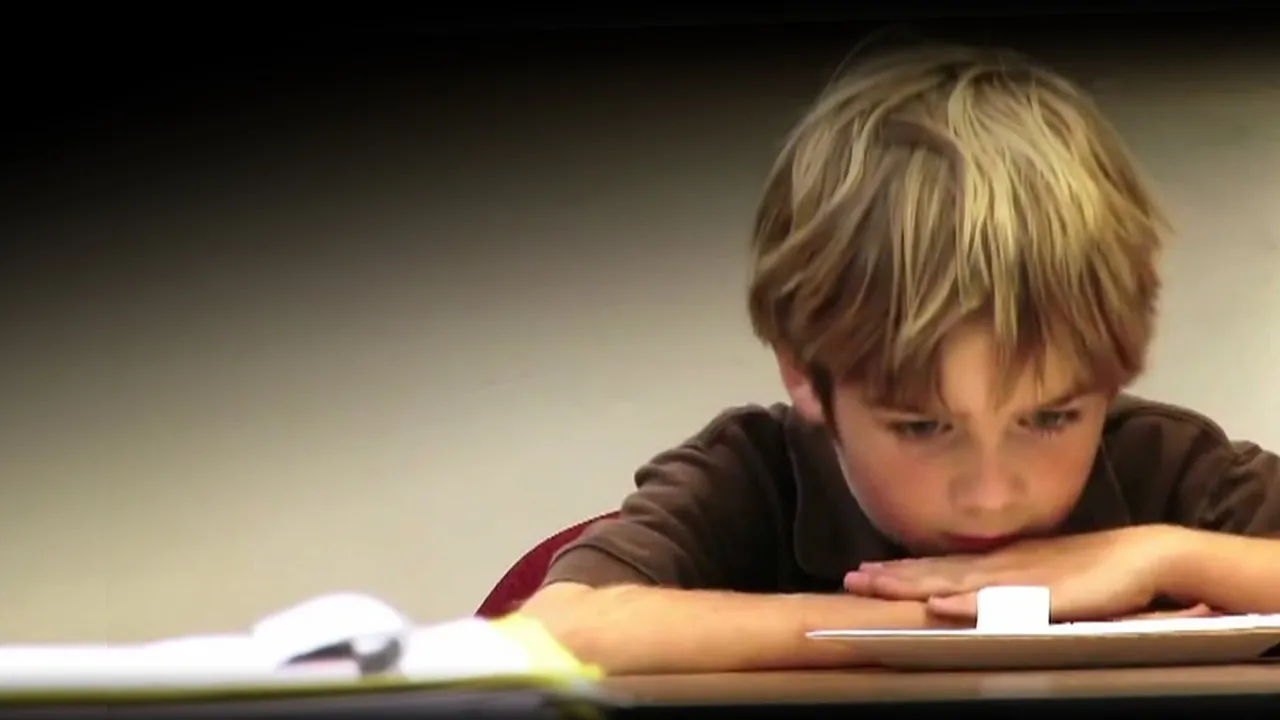
“No tree can grow to Heaven,” adds the ever-terrifying Carl Gustav Jung, psychoanalyst extraordinaire, “unless its roots reach down to Hell.”
Dark side. Even the greatest and most pure have one, and it's about acknowledging it, using it wisely and not allowing it to consume us or take over. A balancing act which when in harmony works great, but if that's disrupted then bad things can happen. Back to the yin and yang; chaos and order.
Peter Pan, the eternal Boy, King of the Lost Boys, Ruler of the non-existent Neverland.
Fairytales are also referenced in this and other Peterson works. As with the religious texts earlier, they tell a story which may pass on wisdom or at least a message.
Peter Pan is seen as directionless and been allowed to drift, rather than have been disciplined to follow a path. His 'freedom' is meaningless and shouldn't be allowed to happen. As Peterson views it.
This is where we head into a debate on freedom, what it really means, if it's really what you want, and how to raise children.
A long period of unfreedom—adherence to a singular interpretive structure—is necessary for the development of a free mind.
This is the counter argument to Peter Pan and his shenanigans. Having set structures and lacking freedom (at least for a significant time) will help a person to develop more fully.

Do what is meaningful, not what is expedient.
Rule 7. Meaningful is obvious, expedient is convenient/practical but may or may not be moral. So focus on things that mean something, rather than a means to an end.
Taking the easy way out or telling the truth—those are not merely two different choices. They are different pathways through life. They are utterly different ways of existing.
That's a major part of who you are. And how you do one thing, is how you do everything to a degree. Those small actions are a pattern of behaviour and mirrored in the large actions.
For what shall it profit a man if he gain the whole world and forfeit his soul? (Mark 8:36)
Selling out. Making some money or other benefit but at what cost?
Tell the truth. Or, at least, don’t lie.
Rule 8. This is an obvious one and there are degrees to it. At its essence is tell the truth. Next best thing is to not actively lie.
That’s the purpose of memory. You remember the past not so that it is “accurately recorded,” to say it again, but so that you are prepared for the future.
The past serves as a lesson on how to live your present and future. Not necessarily to be revisited for entertainment, but to use practically. This may also mean that it's not quite accurate, as you're remembering it in the way that is most likely to keep you alive.
Assume that the person you are listening to might know something you don’t.
Rule 9. Be a good listener and don't think you have all the answers. The other person probably does know plenty you don't and you may just want to find out!
Be precise in your speech.
Rule 10. Don't be vague, but define problems clearly and put them into specific words. Then you'll have a base for facing and dealing with anything. This helps with clarity for you and everyone else, as lack of communication is where a lot of things fall down.
group identity can be fractionated right down to the level of the individual.
Every community or group starts and ends with the individual. Not in a selfish way, but that's the smallest denominator that everything expands from and goes back to. How the individuals operate together and in different environments is important too of course.

Leave children alone when they are skateboarding.
Rule 11. This can be taken literally to a degree and has far deeper connotations. Leave a child to be who they are and let them develop naturally would be a light sum up. And don't stifle them; allow them to experiment with non-extreme 'danger'.
Really it gets into the whole world of 'gender equality' which Peterson and many others would state that's all well and good, but it's not to be taken too far or it messes everything up. That is a far deeper discussion though and a topic for another day.
The parts of your brain that generate anxiety are more interested in the fact that there is a plan than in the details of the plan.
Having a plan is some sort of action and progress. Even though it may not have happened yet, there's a clear path of how it might go. Without a plan you can feel helpless.
Pet a cat when you encounter one on the street.
Rule 12. Live in the moment. Enjoy the small things. Even if life is difficult, you can savour these encounters. In a literal sense, interacting with pets has a therapeutic effect.
“What have I done wrong, and what can I do now to set things at least a little bit more right?”
If you have transgressed, taking a good honest look at yourself and the situation and set about putting it right.
What shall I do with my life? Aim for Paradise, and concentrate on today.
Pursue the best but stay in the moment. Have lofty goals and dreams but live each day, make the most of it and follow habits right now that lead you down the correct path.
Aim continually at Heaven while you work diligently on Earth.
A good way of summing up the previous point!
In a Nutshell: Peterson's 12 Rules…
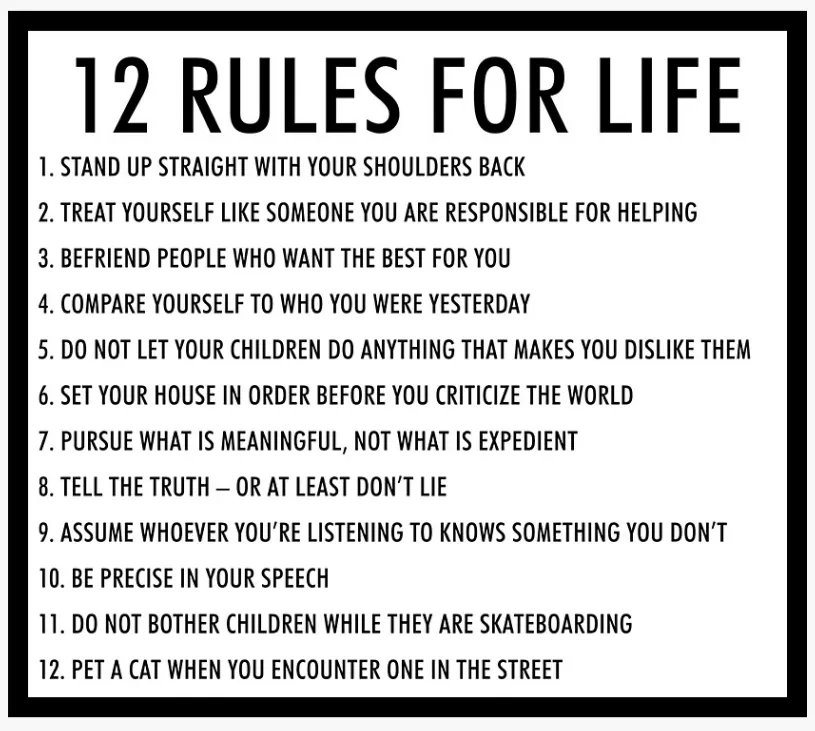
Thanks Jordan! Anything Else?
As I said at the start, this guy's not for everyone. His message is from a particular angle and that may grate some. He does have some interesting things to say and I'm happy to hear his thoughts on a variety of topics, as part of a balanced debate. I don't seek him out though… just one of the many voices out there saying many things.
Obviously the book is worth checking out for fans of Peterson and those with an interest in exploring this more, but perhaps not if you can't stand the chap.
What do you think, and what would be your rules for life?
First image my own, others linked to source. Quotes are from the book.
Check out the others in the series…
- SHOE DOG - Phil Knight
- CRUSHING IT - Gary Vaynerchuk
- FINDING ULTRA - Rich Roll
- WOODEN - John Wooden
- RELENTLESS - Tim Grover
- ON WRITING - Stephen King
- START WITH WHY - Simon Sinek
- THE CHIMP PARADOX - Steve Peters
- ELON MUSK - Ashlee Vance
- WAY OF THE WOLF - Jordan Belfort
- THE SUBTLE ART… - Mark Manson
- GORILLA MINDSET - Mike Cernovich
- THE 10X RULE - Grant Cardone
- FLOW - Mihaly Csikszentmihalyi
- THE GO-GIVER - Bob Burg & John D. Mann
- BE OBSESSED OR BE AVERAGE - Grant Cardone
- NEVER SPLIT THE DIFFERENCE - Chris Voss
- IKIGAI - Héctor García & Francesc Miralles
- THE 5 SECOND RULE - Mel Robbins
- YOU ARE THE PLACEBO - Dr. Joe Dispenza
- DEEP WORK - Cal Newport
- CREATIVE MISCHIEF - Dave Trott
- THE E-MYTH REVISITED - Michael E. Gerber
- THE PERFECT DAY FORMULA - Craig Ballantyne
- SO GOOD THEY CAN'T IGNORE YOU - Cal Newport
- ATOMIC HABITS - James Clear
- OUTWITTING THE DEVIL - Napoleon Hill
- CAN'T HURT ME - David Goggins
- 50 MARATHONS IN 50 DAYS - Dean Karnazes
- GREENLIGHTS - Matthew McConaughey
- THE GLADIATOR MINDSET - Adam Peaty
- OPEN: AN AUTOBIOGRAPHY - Andre Agassi
- THE 1% RULE - Tommy Baker
- THE 5 LOVE LANGUAGES - Gary Chapman
- THE BRAIN THAT CHANGES ITSELF - Norman Doidge
- THE WAR OF ART - Steven Pressfield
- PREDICTABLY IRRATIONAL - Dan Ariely
- BORN TO RUN - Christopher McDougall
- THE ALMANACK OF NAVAL RAVIKANT - Eric Jorgenson
- ESSENTIALISM - Greg McKeown
- EAT & RUN - Scott Jurek
- THAT WILL NEVER WORK - Marc Randolph
- THE SECRET RACE - Tyler Hamilton
- 12 RULES FOR LIFE - Jordan Peterson
- THE GREATEST SALESMAN IN THE WORLD - Og Mandino
- THE MAGIC OF THINKING BIG - David Schwartz
- THINKING, FAST AND SLOW - Daniel Kahneman
- LETTING GO - David Hawkins
- MAN'S SEARCH FOR MEANING - Viktor Frankl
- NEVER FINISHED - David Goggins